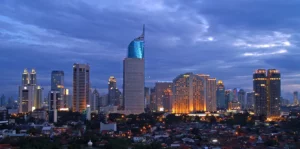Indonesia, home to the largest Muslim population, aims to rank among the world’s top five economies. This ambition seems on track.
Since 2014, Indonesia ascended to 7th largest economy by PPP under Joko Widodo’s presidency, says IMF. It is poised to overtake Russia by 2027.
In addition, the nation aspires to become a high-income country by its 100th independence anniversary in 2045.
For this, its economy must grow by 6 to 7% annually, says Finance Minister Sri Mulyani to the BBC. Currently, growth hovers around 5%.
Indonesia’s vast nickel reserves, crucial for electric vehicle batteries, play a key role in its growth strategy.

President Widodo has faced international disputes over nickel, notably banning its raw export in 2019, which led the European Union to challenge Indonesia at the World Trade Organization.
In addition, beyond its famous Bali island, Indonesia spans 1,700 islands across three time zones.
Its capital, Jakarta, faces submersion issues, prompting the construction of a new capital, Nusantara, expected to house 2 million people by 2029.
In the recent presidential elections on February 14, Defense Minister Prabowo Subianto, pledging to uphold Widodo’s economic policies, appears poised for a first-round victory.
In short, this move underscores a commitment to continuity in Indonesia’s economic development path.

